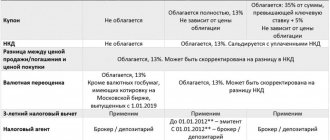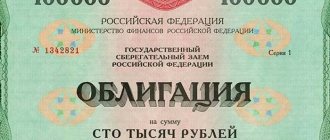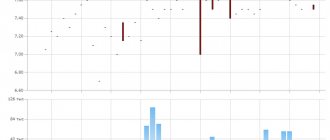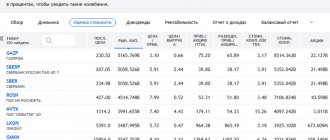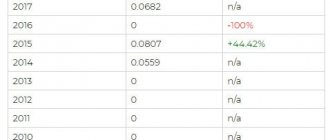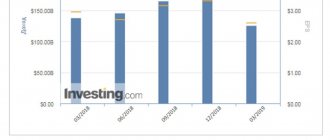What it is
Foreign currency bonds of the Russian Ministry of Finance differ from ordinary bonds only in that they are issued in foreign currency. These securities, available to individuals, are often called Eurobonds or Eurobonds, but they can be issued not only in euros.
For example, Russian Eurobonds can be issued in any currency except the ruble. The most popular among investors are dollar currency bonds issued by the Ministry of Finance, as they are one of the highly profitable and less risky financial instruments.
Why are they released?
The first Eurobonds appeared in European countries back in the 15th century. Since then, they have been issued all over the world, including by the Russian Ministry of Finance. Times go by, but the purpose of their release remains the same:
- covering the foreign currency deficit in the country's budget;
- financing government projects, the implementation of which requires one or another currency;
- Well, don’t forget about making a profit.
But why does the Ministry of Finance issue these securities to individuals? Isn't it easier to work with large companies, you ask? Yes, indeed – working with legal entities is easier, more convenient and easier to control the entire process. And here comes another reason for issuing foreign currency bonds specifically for individuals.
The fact is that the state is also interested in increasing the financial literacy of the population. Let’s not forget that every investor pays taxes, and the more people earn, the faster the country’s budget is replenished. Therefore, the Ministry of Finance considers nurturing a culture of investing among the population one of the priority tasks aimed at the development of the state.
Iskander Lutsko On Wednesday, March 13, the Russian Ministry of Finance placed a record volume of OFZs, fulfilling the borrowing plan for the first quarter by 85% against the backdrop of global demand for risky assets, among which OFZs showed the best dynamics among emerging markets (EM) in local currency.
The ruble added 30 kopecks to the dollar, falling below 65.4 rubles, but the potential for its further strengthening is limited due to external risks that will appear at the beginning of the second half of the year. However, we allow a short-term technical growth of the ruble during tax payments at the end of the month by 30 kopecks from current levels. As we wrote earlier, the first quarter and March are the last month of the ruble strengthening this year, which creates good opportunities for those who have not yet bought currency.
The Ministry of Finance may continue to increase the volume of OFZ sales in conditions of geopolitical uncertainty, but the main demand will be generated by local commercial banks.
Volume of borrowings (OFZ), billion rubles
Source: Ministry of Finance of Russia, ITI Capital
Record auction of the Ministry of Finance
- On Wednesday, the Ministry of Finance held another auction of OFZ without a limit, the placement volume amounted to 92 billion rubles. The Ministry of Finance placed OFZ-26209 with maturity on July 20, 2022 for 35 billion rubles. with demand 61 billion rubles. and weighted average yield of 8%
- The Ministry of Finance proposed long issues of OFZ-26224 with maturity in May 2029 for 57 billion rubles. with demand 84 billion rubles. and weighted average yield 8.47%
- At both auctions, the premium offered was minimal - about 3-5 bp.
- As a result, the actual placement amounted to 92 billion rubles, which is one and a half times less than demand (145 billion rubles)
Borrowing plan and expected demand
- Yesterday's last placement (92 billion rubles) for 34 billion rubles. exceeded the record volume of the February auction by 12 billion rubles. — favorable volume established by the borrowing program. On average, it is 40 billion rubles. for one auction, i.e. 80 billion rubles. for two placements
- Since the beginning of the year, the Ministry of Finance has sold OFZ worth 383 billion rubles. out of 450 billion rubles planned for the first quarter. In total, the department remains to raise 2.052 billion rubles by the end of the year. out of 2.435 billion rubles planned for the year
- The record placement allowed the Ministry of Finance to exceed its plan for March. By the end of the month, he remains to raise no more than 70 billion rubles at two auctions. At the same time, given expectations for a decrease in OFZ yields against the backdrop of a easing of the Central Bank's monetary policy, demand will remain high, which guarantees the implementation of the plan
- In addition, the Ministry of Finance can take advantage of favorable market conditions for further placement in the event of a correction due to sanctions and other factors
Who bought
- For the reasons stated below, we believe that most of the issue, including long-term securities, was bought by local commercial banks (NPFs are for the most part already limited in purchases due to liquidity standards), the rest were purchased by non-residents who are looking at geopolitical risks
- We believe that the main demand from local players will remain until there is clarity regarding new sanctions
Impact on the ruble
- After the rush of demand, the ruble strengthened against the dollar by 30 kopecks
- March is the last month when the ruble can enjoy support ahead of tax payments, traditionally the most significant of the year. At the end of the month, a minor technical strengthening of the ruble to 65.1 rubles is possible. thanks to seasonal tax payments in the absence of external geopolitical pressure
- A significant weakening of the local currency is expected from April (see our review)
Tax payments and currency purchases
Source: ITI Capital
Average dynamics of the ruble against the dollar over 10 years, %
Source: Bloomberg, ITI Capital
Reasons for the hype
Local liquidity factors:
- Significant surplus of ruble liquidity in the local interbank market - more than 3 trillion rubles
- Attractive level of yield on short and long OFZ
, the current premium to the levels at the end of July 2021 is 80 bp, to the April levels preceding the sanctions against Rusal - about 70 bp.
Thus, the current country premium in local currency is about 150 bps. - Freeing up additional liquidity
. From April 1, the Central Bank will reduce the required reserve ratio for banks for ruble deposits and current accounts of individuals and legal entities by 0.25 percentage points, to 4.75%, and reserves for deductions on bank liabilities will increase - The gap between the RUONIA cash rate and OFZ 2022
has narrowed to the level at the end of July 2021. Therefore, if OFZ yields decline, banks may be better off funding through OFZs rather than through RUONIA and MOSPRIME in order to increase their capital adequacy ratio - Excess foreign exchange liquidity
against the backdrop of its net inflow due to low debt payments (-43% y/y), limited purchases of foreign currency by the Ministry of Finance (5-6% of the daily turnover of the foreign exchange market) and an increase in the current account balance (+$22 billion from beginning of the year)
Gap between RUONIA cash rate and OFZ 2022
Source: Bloomberg, ITI Capital
External factors:
- Demand for emerging market assets is hitting
records thanks to carry trades. In January-February 2021, investors invested about $86 billion in stocks and bonds of developing countries, more than in the last nine months of 2021. - Stable and high oil prices
- Absence of sanctions topics in the news background
- Key high-yield issuers in emerging markets are concentrated in Mexico, South Africa, Russia, Colombia, Indonesia and Oman, overvalued in Brazil, Hungary, China, Korea and Chile
OFZ yield curve, %
Source: Bloomberg, ITI Capital
Advantages and disadvantages
Like all financial instruments, foreign currency bonds are not an ideal means of earning money.
The advantages of these securities include:
- transparent pricing;
- high profitability;
- fixed amount of coupon income;
- the holder knows the exact date of redemption of the securities and receipt of the coupon.
However, there are also disadvantages. Among them I will point out:
- unpredictability of the exchange rate;
- average liquidity;
- limited number of securities in circulation.
An obvious disadvantage of this tool is the high financial threshold for entry, at least 1 thousand dollars. Not everyone can afford to invest in foreign currency bonds.
Underwater rocks
Although investments in Eurobonds are considered one of the most reliable, they are not ideal.
Firstly, it is difficult to predict exchange rates over the long term. The exchange rate is influenced by many different factors: oil prices, political stability in the country, local military conflicts, etc. Therefore, with large fluctuations in the exchange rate, an investor can both earn a lot and lose a lot.
Secondly, no one can provide a 100% guarantee against the bankruptcy of the issuer. Even when purchasing securities of large companies or Gazprom, one must keep in mind that they often do not issue foreign currency bonds themselves. This is usually done by their subsidiaries, which are less insured against bankruptcy. The same guarantee does not apply to the Ministry of Finance's securities.
Types of Eurobonds
There are several main types of foreign currency bonds, which can be classified according to the following criteria:
- issuer - the organization that issued the securities;
- application deadline;
- currency;
- price;
- type of income;
- release purposes.
Eurobonds are also divided according to the level of financial risk, investment attractiveness and rating.
Government OFZs in foreign currency
Government or sovereign Eurobonds are issued by governments to cover budget deficits and educate citizens about an investment culture. One of the most reliable securities, since the safety of funds is guaranteed by the state.
Today, 14 Eurobonds issued by the Ministry of Finance are listed on the Moscow Exchange. All names of these instruments begin with “RUS”, for example “RUS-28”, “RUS-47”. The minimum price of foreign currency bonds offered to individuals is 0.375 USD, however, the smallest lot size for this instrument is 1000 pieces.
Municipal
Securities are issued by local authorities to finance regional projects, for example “Udmurt2015” or “KrasYarKr11”. They take second place in reliability, but their profitability is often 1-2% higher.
Corporate
Investment instruments issued by large corporations. They have increased risks, but the highest profitability when compared with securities from the Ministry of Finance.
Russian companies also issue foreign currency bonds. At the moment, more than 100 instruments are traded on the Moscow Exchange, for example “BCS 08/21”, “EVR-22” and individuals can purchase them.
Foreign issuers
The definition of “foreign issuer” includes all organizations that issue bonds in the currency of a foreign state on its territory.
For example, foreign companies that have placed bonds in rubles on the Russian market are foreign issuers. It is they who bear all debt obligations to the holders of their securities.
How to choose and what are the risks
Before making a choice, the investor is advised to study the following points in detail:
- yield of securities - it is necessary to look not only at the yield to maturity, but also at the coupon yield;
- repayment terms.
It is recommended to familiarize yourself with taxation and take into account the risks associated with exchange rate instability. I will give a rating of the most profitable issues below in the article.
The Ministry of Finance held a record OFZ auction after a conversation between Putin and Biden
Investors reacted positively to the conversation between the heads of the two states: the national currency immediately strengthened by more than 1 ruble, to 76.16 per dollar. The dollar exchange rate continued to decline on Wednesday: by 18:00 the American currency had fallen in price to 75.6 rubles. Ten-year OFZs reacted to the news by reducing their yields from 7.3 to 7.14%.
Demand for OFZs on April 14 was also facilitated by the redemption of the issue of ten-year government bonds (series 26205) and the payment of coupon income on circulating government bonds totaling 189 billion rubles, notes Promsvyazbank analyst Dmitry Monastyrshin in a commentary.
Read on RBC Pro
The first trillionaires: who is breathing down the backs of Elon Musk and Jeff Bezos How Airbnb found a new source of income in a world without tourism Why it has become unfashionable to be a leader You won’t get off with dismissal: for which the CFO faces prison
Tension in the Russian market has been observed since March. For example, on March 24, the Ministry of Finance was unable to hold an OFZ auction due to increased volatility; the market was falling, including amid expectations of new sanctions, and then due to investor concerns about the worsening situation in eastern Ukraine. “From the close of trading on March 26 (after this date, messages from Donbass began to arrive more actively) to the close of trading on April 13, the yield on ten-year OFZs increased by 23 bp. Taken together, looking at these figures, we are inclined to believe that Russian government debt showed worse dynamics than its “competitors” in the recent round of geopolitical news - and will now play out the movement in the opposite direction,” Rosbank notes in a commentary.
However, already on March 31, the Ministry of Finance managed to immediately place almost 355 billion rubles at auctions, offering investors bonds with constant income and a rate of 7.27% for seven-year securities and 7.06% for 15-year ones. Analysts noted that success was associated with the offer of high yield to the market and demand from local players: almost half of the offered securities were purchased by VTB Bank - for 158.4 billion rubles.
Siluanov revealed an action plan in the event of sanctions against public debt Economy
In November 2021, the Ministry of Finance placed OFZs worth 427.7 billion rubles in one day, but then the department offered OFZs with a floating coupon, which were mainly beneficial to state banks. Today, the main demand for securities could also be provided by local players. “We believe that local demand will continue to be quite strong. The question is whether, given yesterday’s news, there will be demand for Russian securities from foreign investors,” VTB Capital analyst Maxim Korovin wrote in his review. In early April, the share of non-residents in Russian ruble government debt fell below 20% for the first time in six years, experts estimated.
How to make money from them
The principle of investing in bonds is somewhat different from other financial instruments. Here you will not be able to sell securities at a profit at any time.
There is a different mechanism at work here. The investor receives a profit within the terms stipulated by the contract - coupon income. You can sell securities profitably only on trading days. Otherwise, you can only get your investment back.
How much can you earn
From 4 to 5.5% per annum. The indicator depends on the amount of funds invested in investment instruments, the ability to assess risks and predict exchange rates for the long term.
Is it profitable to buy
Expert opinion
Vladimir Silchenko
Private investor, stock market expert and author of the Capitalist blog
Ask a Question
Yes. Eurobonds are a more profitable means of investment compared to opening a foreign currency deposit in a bank, for example in US dollars, even with the highest interest rate. Today, banks do not offer foreign currency deposits with rates above 3.5%, and there are plenty of Eurobonds with more impressive yields.
Profitability
The total yield of foreign currency bonds is calculated from two parameters;
- coupon income - it is most often paid twice a year;
- annual return.
Traditionally, more reliable financial instruments have the lowest returns. Thus, the yield on one of the available government Eurobonds “RUS-28” today is no more than 4.2%, while corporate foreign currency securities bring no less than 5%.
Is it possible to buy on IIS?
Is it possible for individuals to buy Eurobonds using an individual investment account? Yes. But to do this, you must have dollars in your brokerage account.
Where can I see the list of Eurobonds available for purchase?
You can view the list of Eurobonds traded on the Moscow Exchange on the following popular resources:
- Moscow Exchange – www.moex.com;
- “Finam” – https://bonds.finam.ru;
- “RusBonds” – www.rusbonds.ru;
- "Smart-Lab" - https://smart-lab.ru;
- "Banks Ru" - https://www.banki.ru.
The current cost of foreign exchange instruments can be found from any broker that provides access to trading in Eurobonds on the MICEX.
How much does 1 Eurobond cost?
The minimum cost of 1 lot for Eurobonds placed on the Moscow Exchange and which can be purchased by individuals is 10 thousand dollars.
Currency auction
Foreign currency refers to banknotes, legal tender of a particular country. Currency exchange takes place within the foreign exchange market. Transactions for which are carried out exclusively in non-cash form of payment.
The concept of a currency auction
A foreign exchange auction is a method of organizing a country's foreign exchange market, which is a public auction of currency. The Central Bank of Russia purchases and sells currency for non-convertible monetary units. The purpose of these trades is to provide the opportunity to purchase currency by enterprises that, for some reason, cannot earn it or receive it from centralized funds. Thus, usually the object of trade is not the currency, but the permission to use it. A foreign exchange auction is a prototype of the well-known foreign exchange trading on the stock exchange.
Participants in currency auctions
To conduct currency auctions, it is necessary to organize a currency exchange.
Exchange participants are:
— Central Bank of Russia
- commercial banks located on the territory of the Russian Federation and licensed by the Central Bank to conduct relevant transactions with currency
- foreign banks, with permission received from the Central Bank.
The auction cannot be held without the Central Bank of Russia. This is a mandatory rule. Thus, the Currency Exchange and the Central Bank enter into an agreement on the rights and obligations of the parties to the currency auction, as well as on liability for violation of these obligations.
The currency exchange can carry out the following operations:
— organizing the conclusion of transactions between participants, at the rate determined during trading, analyzing the presence of supply and demand;
— organization of Central Bank operations to maintain the exchange rate of foreign currencies to the monetary unit of the Russian Federation;
— organizing transactions for the purchase and sale of foreign currency for legal entities that are not members of the currency exchange, but through its members;
— the responsibilities of the currency exchange do not include settlements between trading participants. It calculates customer requirements and, on this basis, detects balance obligations of participants, informing them about the volumes in the foreign exchange market.
Settlement between participants (banks) is carried out on the basis of an exchange contract. Whereas the exchange cannot be one of the parties participating in the trading.
The responsibilities of the currency exchange also include monitoring compliance by auction participants with the legislative framework of the Central Bank of Russia.
The following may be present at the currency auction:
- brokers - participants in the currency exchange, with a power of attorney to conduct transactions from the bank. Each section member can have no more than 2 brokers. Transactions on the stock exchange are concluded exclusively by brokers.
- stock brokers - a representative of the exchange apparatus, who is the leader of the trades and has the right to stop trading for up to 10 minutes.
- senior broker - an employee of the Central Bank or a person authorized by him who exercises control over the activities of the broker and the performance of his direct duties. He has the right to stop trading for 30 minutes or terminate it early.
- assistant broker or stockbroker - a technical worker who does not have the right to carry out transactions. In terms of the number of assistants a broker has, their number does not exceed one person, while a broker has two people.
- people who have permission from the Exchange to be present during the auction.
During the auction, participants cannot make announcements that are not related to this auction. All participants are required to carry a pass of the appropriate sample for visual inspection by responsible persons. Thus, the Exchange organizes a pass regime and verification of the identification of auction participants.
Time and place of the currency auction
The operating room of the currency exchange is selected to conduct the auction.
The determination of the trading day is decided by the Exchange and agreed with the Central Bank of Russia.
A section means a place on the trading floor of an exchange for the purchase and sale of certain types of currencies.
The exchange itself determines the operating hours of each section and their location, but when registering new sections, the operating hours and their location are decided no later than 3 weeks before the start of trading. All participants must receive information within three days and it can also be seen on the information stand in the trading floor of the Exchange.
The procedure for purchasing and selling currency on the Exchange
Enterprises, organizations and banks have the right to buy and sell currency on the exchange. When purchasing foreign currency, it is necessary to conclude an agreement for the purchase of currency with a member of the Exchange (bank). The bank, in turn, must ensure that the client is a solvent entity, and then include the client's application in the bid, executed in accordance with the requirements, which is put up for auction by the bank.
After concluding the contract, the bank that makes the purchase must transfer the currency at the purchase rate to a specific account at the Central Bank. The next day after receiving money from the buying bank, the Central Bank transfers foreign currency to the buyer’s account abroad.
Currency transactions on the Exchange
These are transactions made in a certain order by members of the section during the operation of the Exchange. The subject of transactions is Russian currency, as well as foreign currency.
The contents of the exchange transaction (except for the name of the currency, quantity, price and place of the transaction) are not subject to disclosure, that is, they are a commercial secret.
The moment of registration of a transaction on the Exchange is called the conclusion of an exchange transaction.
The following transactions can be concluded on the Exchange:
- forward (futures) transactions;
- cash transactions.
Execution of cash transactions occurs no later than the established deadline.
Futures transactions are executed within a certain period agreed in advance. In turn, forward (futures) transactions can take the form:
- firm transactions that are binding;
- conditional transactions, when one party has the right to choose the method of execution of the transaction.
Transactions can also be concluded on the Exchange, leaving your property or funds as collateral.
All transactions on the stock exchange are carried out by brokers, and can be carried out:
- at a fixed price;
- at a price lower/higher than specified;
- at the current market price;
- at the exchange rate for a specific date;
- at the exchange rate at the time of execution of the transaction;
- at reference price.
The procedure for placing and withdrawing foreign currency from an auction
You can set up currency for trading both before trading and during active trading. However, submitting an application is a mandatory factor. When placing a currency before trading, the application must be submitted to the Exchange information service, while during trading - to the broker conducting the trading or his assistant.
Currency purchase and sale offers cannot be less than 1 trading day, and is determined by the broker.
When drawing up an exchange contract, both participants must find a bank that is licensed by the Central Bank to conduct this kind of foreign exchange transactions and conclude a tripartite contract. If the parties cannot agree, then the transaction will be carried out through a bank, which will be proposed by a chief broker authorized by the Central Bank.
The quotation can be seen on a special board in the trading room.
If the information specified in the application changes, the client must announce publicly on the sales floor.
It is imperative that after the expiration of the application, or the written instructions of the broker, the application for the sale of currency must be removed from the information channel.
The broker, upon entering the hall, must receive a sheet that contains information about the foreign currency put up for auction, as well as applications for the purchase of currency.
If the broker finds incorrect details in the application, then he must approach the broker and make the necessary corrections.
Whereas if the error was on the part of the broker who serves the section, then the broker must report this to the senior broker.
Procedure for conducting a currency auction
Brokers can register and enter the room no earlier than one hour before the start of trading. Each meeting consists of sessions of 45 minutes, with a break in between.
The grounds for concluding transactions may be:
— transactions can be concluded using electronic computer technology;
- oral consent of brokers, which was obtained as a result of public trading and noted by the broker of the section.
The beginning of exchange trading is the third bell, which notifies brokers about the start of the auction.
The auctions take place in the following order:
The broker makes an offer and the number of the broker from whom this offer was received, in the order in which bids are received. The desire to conclude a deal, according to these conditions, is determined by raising your hand up. If there are several offers, the broker opens a trade. Then if there are no brokers who agreed to the proposed conditions, then the broker determines whether there will be interest if the terms of the transaction are changed.
Also, if the broker who submitted the application is not against dividing his lot into several parts, if only one part is redeemed, then the rest will be offered to the next participant in the transaction, under the same conditions. But if there are several brokers wishing to carry out a transaction under the same conditions, the application that was submitted first has priority.
If the broker is not in the hall at the time of the announcement of his bid for the auction, which is his direct responsibility, then this will be regarded as his absence from the auction. Thus, the currency will be withdrawn from trading, the information will be canceled, and sanctions will be applied to the broker. The end of trading, as well as its beginning, is determined by three calls. The third of which is the final trade.
The transaction will be considered concluded only from the moment the broker records the consent of the participants. The next step is to register it on the exchange.
If one of the parties wants to terminate the transaction, or refuses to register and formalize it, then sanctions will be applied to it. In case of disputes, to resolve them, you can always ask for a record of the auction, which is kept by the broker, as an official document.
Procedure for execution and registration of transactions
The broker's responsibilities include paying expenses associated with the preparation and holding of the auction within a certain time frame and in the prescribed manner. Payment of expenses must be made in the monetary unit of the Russian Federation.
Termination of transactions and their recognition as invalid
In cases of violation of the current legislative framework, or other grounds determined by the Exchange, the transaction may be considered invalid or even terminated. If there are disagreements, they are submitted for consideration by the court or the Exchange arbitration commission.
Sanctions
The party guilty of failure to fulfill its obligations bears responsibility, which is provided for by the agreement between the Currency Exchange and the Central Bank.
Then, if a violation of the law occurs, the participant’s activity on the exchange may cease for a certain period or even lose his place in the Exchange section.
At the moment, the Central Bank is considering the introduction of discrete auctions - that is, temporary restrictions on the foreign exchange market. Thus, a discrete auction is a mechanism that will replace the suspension of currency trading and is introduced in the event of dynamic price movements.
The purpose of this auction is to avoid sharp fluctuations in the exchange rate on small volumes.
The term “Dutch model” of foreign exchange auction is also now widely used in practice. This is a method of bidding in which the highest price will be announced first, and then the quotes will be lowered to the price that the first buyer agrees to. In other words, applications will be satisfied in descending order: first from the maximum possible price, to the cut-off mark.
How and where to buy
To start making money on the securities market, an individual first needs to open an account with a broker that provides access to Eurobond trading on the Moscow Exchange. Today there are more than 30 such participants.
Calculation of purchases using an example
In June 2021, you bought 1 bond with a par value of 1 thousand dollars and spent, for example, 65 thousand rubles on it. Let's assume that the repayment is in June 2021.
If in June 2021 the dollar costs 70 rubles, then the Eurobond will be bought from you for 70 thousand rubles. Your profit will be 5,000 rubles, plus the coupon income that you received while owning this security, for example 10% per annum. Total: coupon income for two years will be $200, or 14,000 rubles. The net profit in this case will be 14,000 + 5,000 = 19,000 rubles.
If by the time the bonds are redeemed the dollar will cost 55 rubles, then you will be able to sell the bond at a loss of 10,000 rubles. But don’t forget about the $200 coupon income, which is 11,000 rubles at the time the bond is redeemed. Thus, the investor was still left with a profit of one thousand rubles.
Best brokers
Today there are more than 30 brokers in Russia with access to Eurobond trading on the Moscow Exchange. How to choose the most reliable one from so many? I offer a table with a list of brokers who have been working in the financial market for a long time and have proven themselves as reliable financial partners.
Reliable Russian brokers
| Name | Rating | pros | Minuses |
| Finam | 8/10 | The most reliable | Commissions |
| Opening | 7/10 | Low commissions | Imposing services |
| BKS | 7/10 | The most technologically advanced | Imposing services |
| Kit-Finance | 6.5/10 | Low commissions | Outdated software and user interface |
Investor reviews
Expert opinion
Vladimir Silchenko
Private investor, stock market expert and author of the Capitalist blog
Ask a Question
Bonds are one of the most reliable ways of investing for the long term. Of course, no one will give a 100% guarantee that you will earn money. But in the financial market there are no instruments at all that can provide a 100% guaranteed profit.
What is better – foreign currency bonds of the Ministry of Finance or commercial Eurobonds?
It is quite difficult to answer this question. The reliability of Ministry of Finance bonds is higher than any corporate securities. Unlike bonds issued for the domestic market, foreign currency bonds are guaranteed by international financial syndicates or underwriters.
The largest brokers, banks and investment companies can act as underwriters. They guarantee that the investor will receive payments in the event of bankruptcy of the issuer. However, government securities are traditionally considered the most reliable.
If we take into account profitability, then the situation is exactly the opposite - corporate foreign currency bonds are considered the most profitable. They, as a rule, have the highest percentage and size of coupon payments.
